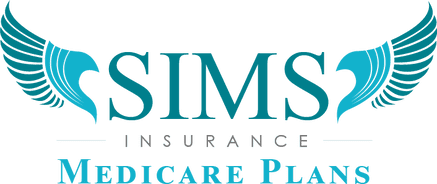Medicare Part C, also known as Medicare Advantage, provides Medicare beneficiaries with an alternative way to receive their Medicare benefits. Offered by private insurance companies approved by Medicare, Part C plans bundle Part A, Part B, and often Part D coverage together in one plan. This comprehensive guide will explain what Part C plans are, the types of coverage and extra benefits they include, their network restrictions, and how they can provide a lower cost option compared to Original Medicare.
An Overview of Medicare Part C
Medicare Part C refers to the Medicare Advantage Plans administered by Medicare-approved private medical insurance companies. Originally called Medicare+Choice plans, Medicare Part C was created after the Balanced Budget Act of 1997 as a way to promote managed care in Medicare. The Medicare Modernization Act of 2003 officially changed their designation to Medicare Advantage Plans.
Medicare Advantage Plans contract with the federal government to provide at least the same level of benefit coverage as Original Medicare (Part A and Part B). Most plans offer enhanced benefits beyond what Original Medicare covers, which is a major reason for their popularity. In 2022, approximately 28.7 million Medicare beneficiaries, or 48% of all beneficiaries, are enrolled in a Part C Medicare Advantage Plan.
Comprehensive Health Care Coverage Under Medicare Advantage Plan
One of the biggest appeals of Medicare Advantage Plans is that they provide comprehensive health care coverage. They include all of the services covered under Part A and Part B of Original Medicare. Part A covers inpatient/hospital care, skilled nursing facility care, nursing home care, hospice, and home health services. Part B covers doctors visits, outpatient care, preventive services, mental health services, medical equipment, and ambulance transportation.
Medicare Advantage goes beyond Original Medicare coverage by combining these benefits with additional services not covered by Parts A and B. Some common extra benefits include:
- Vision care, eyeglasses, routine eye exams
- Hearing exams, hearing aids
- Dental care, cleanings, fillings, dentures
- Health club/fitness memberships
- Over-the-counter drugs and supplies
- Transportation to medical appointments
- Wellness programs
- In-home support services
These expanded benefits aim to provide more complete healthcare coverage and protection for out-of-pocket costs. Many Medicare Advantage enrollees choose these plans specifically for the extra benefits not available through Original Medicare alone.
Examples of Services Covered Under Original Medicare
To understand how Part C plans provide comparable coverage to Original Medicare, it helps to review the types of services covered under Parts A and B.
Part A covers medically necessary inpatient and hospital insurance -related services. These include:
- Inpatient hospital stays – semiprivate room, meals, nursing care, drugs as part of treatment, lab tests, surgery
- Care in skilled nursing facilities – room, meals, medications, rehabilitation services
- Hospice care for terminally ill
- Home health care services ordered by a doctor
- Medicare insurance services
Part B covers medically necessary doctors services, outpatient care, and preventive services. Some examples include:
- Doctors office visits including annual wellness visit
- Outpatient hospital care – ER, same-day surgeries, lab tests, mental health, medical equipment
- Ambulance transportation
- Preventive care – cancer screenings, vaccines, yearly physical
- Lab tests, X-rays, MRI scans
- Mental health services – counseling, psychotherapy
- Occupational, physical, and speech therapy
- Durable medical equipment – wheelchairs, oxygen, walkers
Medicare Advantage Plans must cover all of these medically necessary services. They act as a substitute for enrolling in Original Medicare.
Prescription Drug Coverage Under Medicare Part D
In addition to Parts A and B benefits, most Medicare Advantage Plans include prescription drug coverage, which is Medicare Part D. To offer integrated Part D coverage, the drug coverage must be approved by Medicare as being as good as or better than the standard Part D benefit.
Medicare Advantage Prescription Drug plans, also called MA-PDs, provide convenient access to medications covered under Part D. Beneficiaries appreciate having medical and drug benefits combined in one plan. These coordinated plans help ensure their healthcare needs are covered.
Understanding the Network Restrictions
A key difference between Original Medicare and Medicare Advantage is that Advantage Plans have provider network restrictions. With Original Medicare, beneficiaries can see any healthcare provider in the U.S. that accepts Medicare.
Medicare Advantage Plans require members to receive care from doctors, hospitals, and facilities within the plan’s network, except for emergency care. If a beneficiaries uses out-of-network providers, they will usually pay higher costs.
It’s important for Advantage enrollees to confirm their healthcare providers are in-network before receiving any services. Staying in-network helps avoid expensive out-of-pocket costs. Most plans have online provider look-up tools to see who is in their network.
Why Medicare Advantage Could Provide Lower Healthcare Costs
For many Medicare beneficiaries, cost is a major factor in health plan selection. While premiums for Part C plans may be higher than for Original Medicare, the total out-of-pocket costs are often lower with Part C.
Medicare Advantage Plans have an annual limit on maximum out-of-pocket spending for covered medical services. In 2022, the limit is $7,550. With Original Medicare, there is no cap so out-of-pocket costs could be unlimited.
Some other ways Medicare Advantage can provide cost savings:
- Lower copays and deductibles for covered services
- $0 premium options available
- Part D prescription coverage with low copays
- Maximum annual limits on drug costs
The expanded benefits offered like dental, vision, and hearing coverage also reduce expenses compared to having to buy separate supplemental policies. Medicare Advantage provides security from unexpected healthcare costs.
Conclusion
Medicare Part C gives beneficiaries an alternative way to receive their Medicare benefits through private insurance plans. Medicare Advantage Plans cover all Part A and B services in addition to offering extra benefits not available with Original Medicare. These plans offer comprehensive healthcare at potentially lower costs than other Medicare options. However, network restrictions require using in-network providers. For many beneficiaries, Medicare Advantage provides quality care coordination, budget stability, and coverage they can rely on.
We’re Here to Help
You do not have to spend hours reading articles on the internet to get answers to your Medicare questions. Give Scott Sims at Sims Insurance Medicare Plans a Call at (541) 915-0939. You will get the answers you seek in a matter of minutes, with no pressure and no sales pitch. We are truly here to help.
FAQs
What is Medicare Part C?
Medicare Part C, also called Medicare Advantage, refers to health plan options offered by private insurers that contract with Medicare to provide Part A and Part B benefits.
How do Medicare Advantage Plans differ from Original Medicare?
Original Medicare consists of Part A and Part B coverage for hospital and medical costs. Medicare Advantage Plans (Part C) are offered by private insurers approved by Medicare and must provide at least the same benefits as Original Medicare. However, Medicare Advantage Plans may offer extra benefits and have different provider networks and costs.
What are the types of Medicare Advantage Plans?
The main types are Health Maintenance Organization (HMO) plans, Preferred Provider Organization (PPO) plans, and Private Fee-for-Service (PFFS) plans. They vary in terms of provider networks and approval needed to visit specialists.
How do I sign up for Medicare Part C?
If you are eligible for Original Medicare, you can sign up for Medicare Advantage (Part C) during your Initial Enrollment Period surrounding your 65th birthday. You can also enroll or switch Part C plans during the Annual Election Period each fall.
Am I eligible for Medicare Part C?
To enroll in a Medicare Advantage Plan through Part C, you must have both Part A and Part B of Original Medicare and continue to pay your Medicare premiums. Part C is an alternative way to receive benefits rather than directly through Original Medicare.
When does Medicare Part C coverage begin?
For those enrolling during the Initial Enrollment Period, Medicare Part C coverage generally begins on the first day of the month you turn 65. If enrolling at another time of year, coverage may begin on the first of the upcoming month after your plan selection is processed.
Can I enroll directly in Medicare Part C if just turning 65?
No, if newly eligible for Medicare you must first enroll in Original Medicare Parts A and B. Once that coverage takes effect, you can then choose to switch to receiving your benefits through a Medicare Advantage Part C plan.
How does Medicare Part C coverage work?
Medicare Part C coverage is provided through private insurers approved by Medicare. They must provide all benefits covered under Parts A and B, but may have lower costs and offer additional benefits depending on the plan selected. Enrollees receive their Medicare benefits through the selected Part C insurer rather than directly from Original Medicare.
What is the difference between Medicare Advantage and Original Medicare?
Original Medicare consists of Part A and Part B coverage managed directly through Medicare. Medicare Advantage Plans (Part C) are an alternative option provided by private insurers under contract with Medicare. Advantage Plans must cover all Part A and B services but may have lower costs or extra benefits compared to using Original Medicare alone.
How do I get more information about Medicare Part C?
For details on the types of Medicare Advantage Plans available under Part C in your area and how to enroll, check www.Medicare.gov or contact your State Health Insurance Assistance Program (SHIP). SHIP counselors can provide local resources and help you choose the best Medicare Plan for your individual needs and budget.


